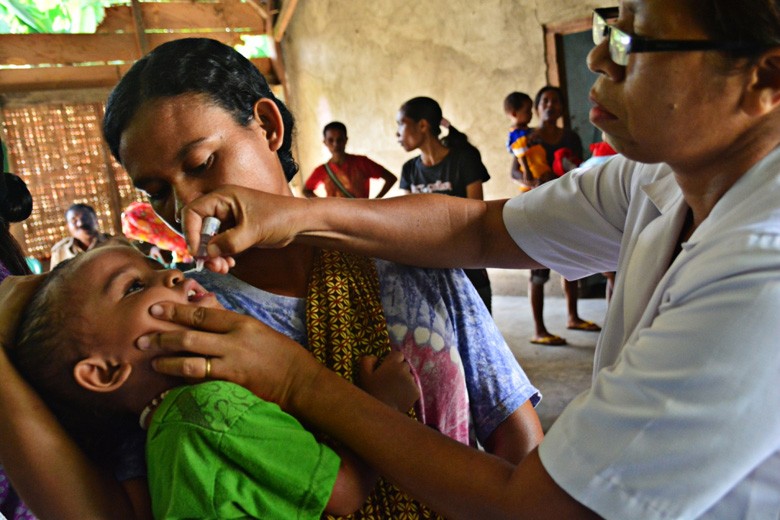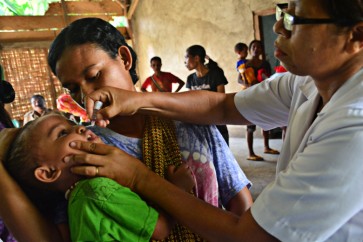Popular Reads
Top Results
Can't find what you're looking for?
View all search resultsPopular Reads
Top Results
Can't find what you're looking for?
View all search resultsNourishing Indonesia’s 4.0 generation
If we want our workforce to be healthy, we should ensure that infants born from now on, school children, and even teens are getting the necessary nutrients by ensuring they are eating and drinking properly.
Change text size
Gift Premium Articles
to Anyone
 For healthier children: A health official from the Waelengga community health center (Puskesmas) in Watunggene subdistrict, Kota Komba district, East Manggarai regency, Flores, East Nusa Tenggara, prepares a polio vaccine for a baby on the first day of national polio immunization week in March. (thejakartapost.com/Markus Makur)
For healthier children: A health official from the Waelengga community health center (Puskesmas) in Watunggene subdistrict, Kota Komba district, East Manggarai regency, Flores, East Nusa Tenggara, prepares a polio vaccine for a baby on the first day of national polio immunization week in March. (thejakartapost.com/Markus Makur)
A
s Indonesia moves into the Industry 4.0 era, the government has laid out a road map for the country to transition from focusing on infrastructure to focusing on human capital development.
That plan seeks to take maximum advantage of Indonesia’s demographic dividend, which describes the period when the share of the working-age population (defined as 15 to 64 years old) is larger than the non-working-age share of the population.
During this period, the productive efforts of the working population support the rest of the population that is not economically productive. However, the demographic dividend only gets paid, i.e. can only deliver economic gains, if the working population is productive — meaning healthy.
According to Statistics Indonesia (BPS) data, the dividend period starts this year when 68.7 percent of the population is categorized as “productive”. The agency also predicted that the peak of the dividend will be reached in 2036.
Hence, the health of not just those people now aged 15 to 64 years old, but also of those children born two years from now — who will turn 15 in 2036 and become part of the peak dividend team — becomes a crucial factor in productivity.
Unfortunately, in the past several years, stunting and obesity have taken the limelight in Indonesia’s health news. The prevalence of stunting even became one of the main priorities of the Health Ministry. The Ministry aims to reduce prevalence to 28 percent by the end of this year from 30.8 percent earlier this year, but that would still mean that one in four children suffers to some degree from the long-term impact of malnutrition.
With obesity, the government’s Basic Health Research (Riskesdas) of 2018 found that the prevalence of obesity in adults aged 18 years old and above has increased from 10.5 percent in 2007 to 14.8 percent in 2013 to 21.8 percent in 2018. That increase puts Indonesia in the top 10 list worldwide.

















